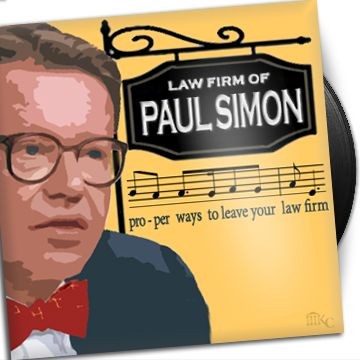The Lawyer's Lawyer
Lawyers Helping Lawyers Avoid the Perils of Professional Discipline
Ways to Leave Your Law Firm
Q. I gave ten years of my life to this firm.
But I think I've reached my limit on the fees that I can earn.
I should fly solo, yet there's much that I must learn.
What are the proper ways to leave my law firm?
A. When you depart
You must act ethically
To get off to a great start
Once you really do break free.
If you are ready,
Just listen to me
About the proper ways
To leave your law firm.
In short, Fran can plan.
But Myles can't steal files.
Clyde shouldn't be snide.
Joyce must respect the clients' choice.
And, as the following article teaches, Bea can live prosperously if she breaks free nicely ...
